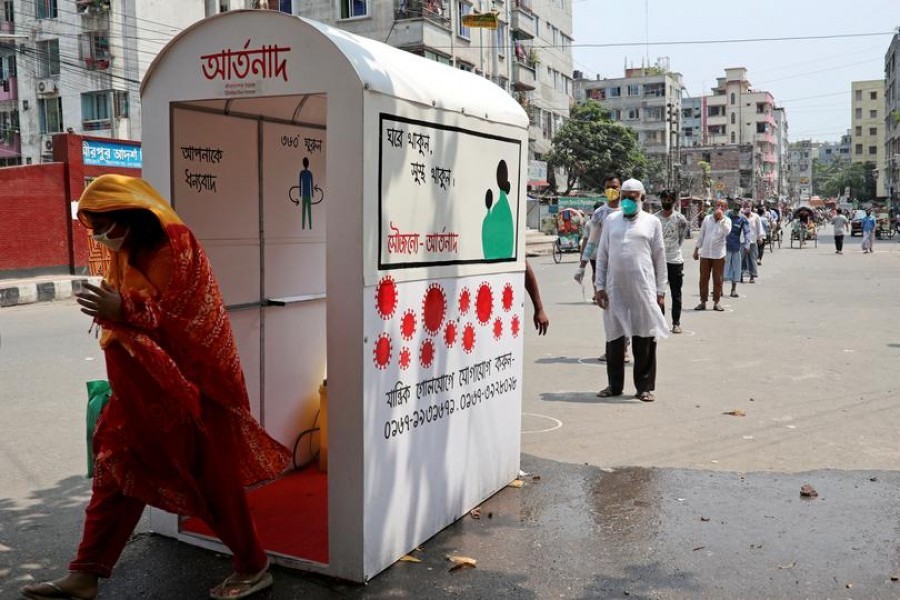As the second wave of the Covid-19 pandemic is raging through the country, Bangladesh is in urgent need of vaccines. The measures to check contagion by lockdowns and various health guidelines cannot be expected to continue indefinitely. At a stage, life must be allowed to return to normality. And, the wheels of the economy should also turn full steam. To that end, Bangladesh will be required to look for a securer answer to the question of pandemic. Needless to say, appropriate drugs and, in particular, vaccines, can promise a better and longer-term protection against the pandemic.
Now that vaccines are being manufactured and used in some advanced countries to save their people from the pandemic, Bangladesh can ill-afford to lag behind. To this end, purchase of vaccines from as many sources as possible should be one option. Undeniably, government's initial move to procure AstraZeneca or Covishield vaccine from India was a commendable one. True, the first deal to obtain the vaccine could not bring the expected result. Even so, a section of the population, however small, could be vaccinated in the first drive. And, as a spin-off of the drive, we are now in possession of the necessary infrastructure for nationwide immunisation and a large army of health workers specialised in the job of vaccination. This would be of great help to start any future immunisation drive forthwith once a substantial quantity of vaccine is in hand.
At this point, one needs also to understand that purchased vaccines cannot be a lasting solution to the national health crisis created by the Covid-19 pandemic. This is for the simple reason that the pandemic might be around for a longer time than one would like to have it. This is patently clear from the way the virus behind the pandemic is changing itself through mutation and producing new variants, some of which have proved to be more contagious. In that case, the nation would be required to ready itself for a prolonged war with the pandemic. And as part of that preparation, building Bangladesh's own capacity to manufacture vaccine would be the imperative.
On this score, former diplomats, former regional WHO director and health experts at a recent webinar hosted by a local study group came up with similar observations about containing the pandemic. According to the speakers, the issue of developing our own capacity to produce vaccine must take centre stage. Also, to them, the target of achieving 'herd immunity' through vaccinating a sizeable portion of the population should be high on the agenda. For the purpose, Bangladesh would be required to procure over 250 million doses of vaccine.
But does Bangladesh have any public or private facility to generate such quantities of vaccine? The good news is that the country is already having such a public facility for over half a century and has been producing several types of vaccines. The point is to renovate the facility for the present purpose. Side by side, the privately-owned facilities should also be encouraged and given needed support so they may join hands with government to manufacture vaccine.
Admittedly, research and development are the essential ingredients of such efforts. So especial emphasis should be laid on strengthening country's capacity in this regard.
Finally, in its fight against the pandemic, the best option before the nation is to create and rely on its own strength. The imperative is to begin to work in earnest to that end.


